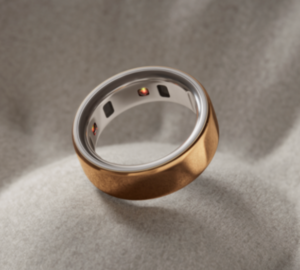Saunas provide more than just a relaxing way to unwind after a long day. When used correctly, saunas — both traditional (which use heat generated from a heater within the room) and infrared (which use light to generate heat) — can provide major, science-backed benefits for your overall health.
Trouble sleeping? Using a sauna may also improve your nightly shuteye: “Heat exposure before bed, such as using a sauna, typically has positive effects on sleep,” says Dr. Po-Chang Hsu, MD, medical expert at Sleeping Ocean.
Learn more about how time spent unwinding in the sauna can benefit your sleep and overall health, and how to incorporate it into your daily routine.
RELATED: 8 Secrets from Finland to Stay Happy and Healthy This Winter
The Sleep Benefits of Sauna
If you’re looking to get better sleep, saunas offer a variety of sleep-boosting benefits — starting with how heat impacts your body temperature.
“Heat will raise our body temperature when in a sauna,” says Roban. “Afterwards, our body temperature will cool and drop, which then signals to the body to produce the hormone melatonin.”
And melatonin is a key component to getting better sleep.
“Heat exposure in a sauna may boost melatonin production, a sleep-inducing hormone,” Hsu agrees. “This typically makes people fall asleep faster and often leads to deeper, restorative sleep.”
In addition to raising and lowering your body temperature and jump-starting melatonin production, spending time in a sauna before bedtime can also help you relax, both physically and mentally — a key element in falling and staying asleep.
“Heat boosts muscle relaxation and reduces tension in the body,” Hsu adds. This allows people to enjoy a deeper state of relaxation that can also help them fall asleep more easily at night.”
| Member Tip: Want to see if using a sauna helps you fall asleep faster? Use the tags feature to log when you use a sauna, and then compare it to your sleep latency. You may notice a correlation between sauna use and a shorter latency! |
RELATED: 10 Simple Breathing Exercises for Relaxation

Additional Health Benefits of Sauna
In addition to helping you sleep more soundly, research shows that deliberate heat exposure in a sauna can provide a variety of other health benefits.
- Pain relief: If you struggle with pain, saunas may be able to help. One study found that spending time in a sauna twice a day for five consecutive days measurably reduced low back pain.
- Improved immune function: Spending time in a sauna may also support immune function. This study found that sauna bathing (and the following cool down) immediately stimulated the immune system and increased white blood cell count. (The immune system boost was more pronounced for athletes vs. non-athletes.)
- Improved circulation: Studies also show that sauna sessions improve circulation; the improved circulatory response is a way to control body heating.
- Improved heart health: Research has found that the risk of cardiovascular death decreases with sauna use — and the risk decreases linearly as weekly sauna sessions increase. (Or, in other words, the more you sauna, the lower your risk of cardiovascular death.)
- Increased metabolism: Raising your body temperature in a sauna — and then bringing your temperature back down afterwards — may also increase metabolism. One study found that metabolic rate increased by 25 to 33 percent one day following a 12 minute sauna session and six minute cool-down.
- Reduced stress levels: Saunas don’t just feel relaxing; they actually reduce stress levels. Research has shown that saunas decrease cortisol, also known as the stress hormone.
| Member Tip: Oura members can see how sauna use impacts their stress levels by using the Daytime Stress feature. You may notice a spike in your stress when you’re in the sauna, due to the heat, but then a rapid decline in stress as you cool down and recover. |
What’s the Difference Between Infrared and Traditional Sauna?
There are two types of saunas: traditional sauna, also known as a dry sauna, and an infrared sauna. The main difference between the traditional sauna experience and an infrared sauna is how heat is delivered, as well as the intensity of that heat.
“Regular saunas heat from the air to the body,” says Dr. Whitney Roban, PhD, sleep expert, author, and founder of Solve Our Sleep. The temperature in a dry sauna can range from 150 to 195 degrees Fahrenheit (about 65 to 90 degrees Celsius). While some people love the heat, the high temperatures can feel too intense for others.
Infrared saunas can offer a less intense alternative. An infrared sauna is a type of dry heat therapy that doesn’t use water or add humidity; instead, it uses infrared light, which is in the invisible region of the electromagnetic spectrum.
Plus, you’ll feel warmer faster, and you can enjoy deeper heat penetration into your muscle tissues and other areas without feeling too hot or uncomfortable. The typical temperature in an infrared sauna runs from 113 to 140 degrees Fahrenheit (45 to 60 degrees celsius lower) than traditional saunas.
These types of saunas are typically “easier to handle, making them more suitable for people who can’t bear high temperatures due to certain health issues or personal intolerances,” Hsu notes.
Which is Better: Infrared Sauna or Traditional Sauna?
If you’re looking to use a sauna strictly for the health benefits, you won’t find much of a difference between infrared saunas and traditional saunas.
“The health benefits of infrared and regular saunas are pretty much the same, including improved cardiovascular health, reduced blood pressure, alleviated pain (including chronic), deep tissue relaxation, and reduced stress levels,” says Hsu.
If you’re thinking about using a sauna to get better shuteye, infrared saunas might offer a slight advantage over a traditional sauna — in the form of an additional melatonin boost. “It is believed that the red light wavelength [used in infrared saunas] stimulates melatonin,” says Roban.
RELATED: Everything You Need to Know About Melatonin

How to Incorporate Sauna Into Your Routine
- For better sleep: Hit the sauna in the evening, suggests Hsu: “This will result in muscle relaxation that typically triggers a sleep-inducing response. But make sure to give yourself at least 30 minutes after leaving the sauna before going to bed. This will give the body a chance to drop back down to its core temperature, which can make it easier to fall asleep.
- For overall health benefits: The amount of time you spend in the sauna is important. For general health benefits, aim to spend one hour per week in the sauna, split between two to three sessions, suggests Andrew D. Huberman, PhD, associate professor of neurobiology at Stanford University, on his website, The Huberman Lab.
- For cardiovascular benefits: Huberman recommends spending between five and 20 minutes in the sauna between two and seven times per week. However, it’s also important to listen to your body; if you find the heat to be too intense, start with shorter sessions and slowly increase the time as you feel more comfortable.
Finally, in addition to when you use the sauna — and how long you stay there — consider how you spend your time in the sauna. To reap the most health- and sleep-boosting benefits, use this time to practice meditation and/or deep, mindful breathing, Hsu recommends. “Mindful breathing can help relax the mind and reduce stressful thoughts that often keep us awake at night,” says Hsu.
Who Should Avoid Sauna Use?
If you have blood pressure issues, you’ll want to approach saunas with caution (and doctor’s approval) — and, in certain situations, avoid them altogether. “People who suffer from high blood pressure should avoid combining a sauna with cold water exposure,” says Hsu — for example, alternating between a sauna and a cold plunge.
On the flip side, “people with low blood pressure are advised to abstain from using saunas whatsoever — unless their doctor says otherwise,” says Hsu.
In addition, “sauna use is not recommended for people who have heart disease, kidney problems, women who are pregnant, people who are already dehydrated, have problems with dizziness, [or] are using alcohol and/or drugs,” Roban notes.
READ MORE: 5 Simple Breathing Techniques for a Good Night’s Sleep




